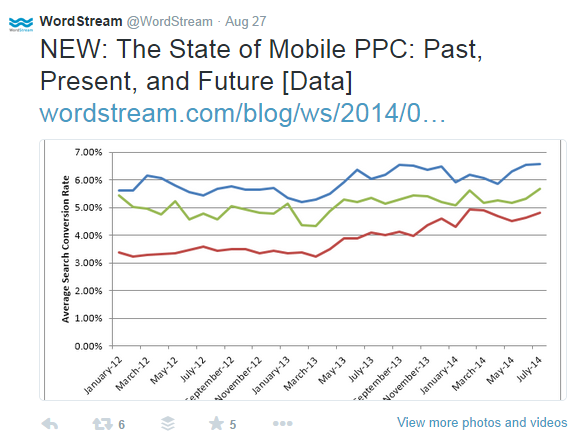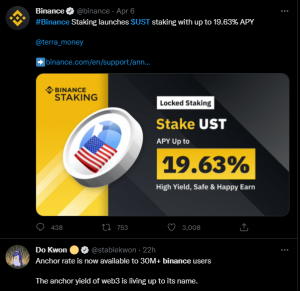When it comes to thought leadership in the digital marketing space, there is certainly no shortage of material out there. Not only are there numerous publications dedicated to providing new insights and guidance to marketers, but most agencies are also generating content. With each of these groups pumping out multiple articles a week, the internet is flooded with AdWords advice.
At this point, it feels as though the web is oversaturated with digital marketers’ blogposts, whitepapers, cheat sheets…the whole nine yards. And what’s worse is that nearly every article holds the promise of a “magical solution” or a “secret sauce” to help you beat out the competition or double your ROI. When I first started working in paid search, I read this content religiously and yes, I drank the Kool-Aid. I trusted nearly every article that I read. However, as I have become a more seasoned marketer, I’ve also become a more discerning reader. The problem is, despite the huge volume of PPC advice out there, a lot of it just isn’t insightful information.

For those new to the industry, I imagine that it is extremely challenging to weed through all of the content and identify truly valuable advice. To help you get a leg up on the process, I’ve outlined the criteria I use to cut through the crap and determine which articles are true game changers.
Below you will find the top questions I ask myself while reading posts about search engine marketing. If an article passes this sniff test, I know it’s worth giving a thorough read.
Is the Source Credible?
You wouldn’t let any old Joe Schmo make changes to your AdWords account, would you? The same policy holds true in this situation—you should only follow optimization advice from reputable sources that you trust. After reading an article, take the time to do some quick research on the writer to get a sense for their background and level of expertise. Once you’ve identified a group of thought leaders that you trust, follow those individuals on Google+, Twitter and LinkedIn to keep track of new content that they produce or endorse.

You should also be mindful of who is publishing the content that you are reading. When it comes to strategy, your best bet is to learn from an unbiased third party, like Search Engine Land. Google-based materials are excellent resources if you’re looking for technical guidance or new release updates, but I recommend taking all strategic advisement from Google with a grain of salt. Remember, your actions have a direct impact on their bottom line, so often their recommendations are skewed to encourage you to spend more money in your account. Also beware of content produced by PPC agencies that may be more focused on selling you their services then helping you solve your account issues.
Is the Content Up to Date?
Approximately once a month, one of my clients will call me in a complete panic asking why we have yet to:
- Break out their campaigns into tablet-only and mobile-only campaigns
- Create Product Extensions for their account
- Insert outdated PPC tactic here
After explaining that the strategy they are so dead set on implementing no longer exists, nine times out of ten they swear it does because they “read it somewhere online.” Newsflash—guys, just because you read it on the internet, does not mean it is true! The fact of the matter is, the paid search space is evolving rapidly and therefore, a great deal of PPC advice does not have a long shelf life.
Remember, in the past few years, Google has placed considerable emphasis on improving their greatest moneymaker—AdWords. Although many of their new features are targeted to help advertisers, they are innovating at a rate that is challenging for many to keep up with. As a general rule of thumb, I recommend avoiding any how-to posts that are more than a year old. Articles focused on strategy may withstand the test of time a little better, but I still recommend exercising caution when reading outdated material.
Is This Theory Backed with Data?
A few months ago, I was preparing to give a presentation on remarketing tactics and, to be honest, I felt pretty good about it. I’d set up plenty of campaigns for clients and I’d pored over enough blogposts and case studies to master the tricks of the trade. I figured I had it in the bag…that is, until I started working with our in-house data scientist, Mark Irvine, to analyze our accounts’ performance. As we dove into the data, we started to realize that the “best practices” touted by many PPC practitioners were not supported by the numbers. In fact, it became clear that most of the conventional wisdom was based solely on user feedback.

Smart PPC marketers let data guide their every action. Any blogger providing strategic guidance should reference data backing up his or her points. Bonus points if they provide the stats in the post so you can review it yourself!

How Extreme Are the Implications of the Recommended Action?
When I first started consulting in the SEM space, I was nervous to give my clients advice that was anything but conservative. I knew that some accounts would benefit from more aggressive management, but I was terrified of recommending the wrong “bold” action and tanking the account completely. Rich Griffin, WordStream’s Director of Managed Services, caught wind of my terror and gave me a piece of advice that totally reshaped my approach to paid search. Rich explained that one can never truly move the needle in an account if they aren’t willing to take risks – however, the key is to take these risks on a small scale. If the experiment is successful, go bananas and apply the changes across the board. If it’s a disaster, it’ll only wreak havoc on a small section of the account, and you can quickly undo the damage.
Now, when I read instructional material online, I’m on the lookout for PPC pundits advocating for massive, account-wide changes. If this is the case, I am immediately suspicious of the advice. If I do implement it, I start with a small control group, rather than overhauling the entire account.
What happens when you’re still not sure what to do?
When in doubt, go with your gut and trust your own expertise. If you’re still hesitant, ask for expert advice! Post your questions on a PPC forum, ask your WordStream Premier Consultant or tweet about it on #ppcchat.
Business Articles | Business 2 Community
(1412)






